This is the age of convenience where fortunate people like us can have needs and demands met at our fingertips. At the first sign of any inconvenience -- be it traffic, potholes, garbage, noise pollution -- we get on social media to vent. But what about those who don't have access to these conveniences that we take for granted? Especially folks living in remote areas of the country.
The litany of challenges that ail rural India -- illiteracy, lack of sanitation, poverty, female feticide and dowry – is familiar. While a lot needs to be done and can be done to improve the situation, there are only a handful who step up and get their hands dirty to bring about a real change and improvement in the lives of the marginalised.
Those who can be counted among these ranks are fellows from SBI Youth for India Fellowship, a programme funded and managed by the State Bank of India (SBI) in partnership with well-known NGOs. The fellowship aims to solve rural India’s most pressing problems by giving educated Indian youth the opportunity to touch lives and create positive change at the grassroots in rural India. In the last eight years, the programme has seen around 295 youngsters partner with NGOs to bring about the much-needed change. YourStory spoke to five SBI YFI Fellows to know more about their transformative stories and the powerful initiatives they orchestrated in these five sectors.
Water: Ashvath Kunadi
Ashvath was born and raised in Jaipur, the capital of Rajasthan, where noted environmentalist Rajendra Singh’s work reviving Johads in rural areas of the state, earned him the title of Waterman of India. Inspired by this, and also by David Attenborough’s narration of nature’s wonders, Ashvath decided to work in the environmental sector.
After completing his undergraduate course, he enrolled for the SBI YFI programme and worked with Central Himalayan Rural Action Group (Chirag) in the Takula block of Almora district in Uttarakhand. As part of the 2016-17 batch, his project involved recharging and reviving natural springs.
Ashvath says during the programme he learnt that there is a dearth of scientific exploration in the area of spring recharges in the Himalayas. “There is inertia that needs to be overcome to progress in this field and optimise the work that is being done.” He believes that the contribution and involvement of people living in the areas is invaluable to the project.

However, he did find that the caste system still played a part in the day to day lives of people, but adds that it did not impact his work.
Ashvath believes that good people from anywhere can improve the lives of other people, no matter where they are from; urban or rural, rich or poor. “If the urban youth want to serve the needs of rural India, they’d need to live amongst them, understand their problems honestly and not try to fit their problems in predefined boxes in their minds. They need to humbly work towards generating a solution by recruiting opinions and facts, and be grateful for the opportunity to do so.”
He shares a story about Jitendra Singh, or ‘Jitda’, as Ashvath fondly refers to him, who worked alongside Ashvath during training programmes. “I didn’t enjoy the fact that despite doing most of the grunt work he’d take a back seat in the bigger events. He is certainly a capable individual and as it would turn out, a great speaker. Slowly we started developing training modules together, rehearsing and perfecting them. We became the people who would be invited by other areas to conduct their training.” The wow moment was when Jitda went to Nepal and demonstrated to another organization how their training module worked.
Ashvath has just completed his Master’s programme in environmental engineering from Berkeley, and will now pursue a PhD in Australia to solve even tougher problems and learn skills that are even more advanced. “My experience with YFI and Chirag played no small part in my acceptance to the best programme in the world for environmental engineering. After my PhD, I want to finally come back to India and honestly solve the toughest problems in the water domain.”
Livelihood Generation: Natiya Vashanthakumar
Natiya hails from Tamil Nadu where her father works as a rural veterinarian for the state government. While working for Goldman Sachs, she realised that while the work and pay were great, she did not like being cut out from the real problems of life and living in a virtual world of stock markets and electronic currencies. She quit her job, and pursued a master’s programme in anthropology as she had made up her mind to work in the development sector. That’s when she stumbled upon the YFI fellowship.
A fellow from batch 2018-19, her project involves creating livelihood opportunities for tribal women, and empowering them. “The word ‘rural’ is the spine of our country and there needs to be no justification for the need to strengthen our rural economies,” she says.
Natiya is located in a place called Jawhar, a taluk in Palghar district of Maharashtra, where 91 percent of the population are Scheduled Tribes. Agriculture is the primary occupation but cultivation is highly dependent on the monsoon, with the major crops being rice and millets. According to the Ministry of Women and Child Development, as many as 396 children died due to malnutrition and other reasons in Palghar district of Maharashtra in 2017-18.

After repeated visits to multiple villages and discussions with women self-help groups, youth groups, government officials, etc. it was clear that the community was desperately in need of a source of livelihood besides agriculture.
Noticing a good prospective market for millets nearby cities, Natiya put together a small women’s group in the village of Wanganpada to produce finger millet ladoos. The women were trained to purchase raw materials, make, package and deliver the ladoos by themselves. “The USP of our model is that the surplus ladoos from every order are freely distributed in the village Anganwadi.”
After seeing how well-received the laddoos were by Anganwadi children, they approached private and government agencies working in the area of children’s health and nutrition to include millet laddoo as a part of their programme. They even succeeded in serving children of 14 Zila Parishad schools with these for a brief period.
When she initially reached Jawhar, communication was a barrier. She slowly started picking up Hindi to convince the community about their need for an alternate form of livelihood. A fitness freak, she adapted to having to eat vada pavs for breakfast. Natiya even survived two episodes of typhoid and one episode of malaria during this yearlong journey. “I have transformed into a stronger version of myself. I feel more confident to take a stance for the good even when the majority thinks otherwise.”
Natiya says that the average yearly income of an Adivasi family in the area is about Rs 20,000 to 25,000. Their intervention has helped six women earn more than R. 12,000 in nine months as a supplementary income source. She says that today’s urban youth need to empathise and think beyond their needs, and be receptive to local products.
She says that while YFI has given her the reality at the grassroots level, she plans to continue working in other areas within the development sector that will give her a perspective from the thinktank level.
Education: Sanjana Yadav
Born in Haryana, Sanjana did her Masters in English Literature. Growing up in an orthodox patriarchal environment, when she lost a cousin to domestic violence, it motivated her to join the SBI YFI programme. “This sector shows a different world. There are so many problems which allow you to make a difference. The social sector is more sustainable than any other sector,” she says.
Sanjana is part of the 2017-18 batch and her project took her to Tilolia in Rajasthan to work with schools in gender sensitization. She says that it’s imperative that school curriculum lays strong emphasis on inculcating values of equality, inclusivity and diversity, all of which are essential for building a healthy society. “It’s easy to break stereotypes at a young age, rather than when they grow older and are rigid to new ideas.”
Though initially she planned to work with adolescents, when she took the baseline survey, she realised that six-year-old boys believed that it was okay to beat a woman if she commits a mistake, 10-year-old girls only aspired to become a wife, and almost 30 percent of the children were married off very young and more than half of them were victims of child abuse. She realised that it is important to engage with young children to put an end to discrimination and violence and create champions of equality.

The biggest challenge she faced was the resistance from the community. “It is difficult to make them understand the importance of conversations around gender. Most of the communities we work with are very patriarchal and backward.” But coming from a conservative background herself, she was able to connect easily with them.
Even within schools, she noticed that girls and boys wouldn’t sit, eat or play together. It was important to get them to acknowledge the issue in their classes and community and create solutions themselves. “Young minds have so much potential to bring change through small actions,” says Sanjana. She narrates an incident where as part of their holistic curriculum, boys were asked what they hated the most about being boys. “Most of them wanted to wear makeup and henna, get dressed up, so we created a day in a month for them to do that. The idea was to make them tolerant to diversity, to help them understand the nature of clothing,” she says. One of the boys said he felt liberated because he liked wearing such clothes but feared being ridiculed. Through this, he understood that a garment doesn’t define his gender. Another boy who usually wouldn’t play with girls and would abuse them, now teaches cricket to girls and is fine with them winning. At the end of two years, she has built a gender-sensitive curriculum in 57 schools and colleges, and recently piloted a project in 11 states across 20 NTPC locations. In 2018, she received a UN award for this project.
Sanjana says that when you live in urban areas, you live in a cocoon and conveniently ignore the problems and talk about development, “The rural areas need us more than urban. Unless we provide for their basic needs, we can’t talk about development.” She plans to continue working on the same project in Rajasthan. She has also collaborated with Starbucks to implement the gender curriculum in Assam.
Technology: Siddhant Gupta
Siddhant hails from Uttar Pradesh and is an alumnus of Mayo College, Ajmer, MIT Manipal and IMT Ghaziabad. While working as a Product Manager at Axis Bank's Merchant Acquiring Business, he realised that he always had an inclination toward the social sector. During his MBA, he had the chance to work in a slum in Ahmedabad. He even tried to build a medical device startup for the development sector during his engineering days. He came across SBI’s YFI programme on social media. “I was looking for the right place to plunge into, and this sounded perfect. By then, it had also begun to sink in that corporate life was not for me,” he says.
Siddhant is part of the 2017-18 batch of SBI YFI and his project included working on a technology-oriented approach to Water, Sanitation and Hygiene (WASH) assessment in Gram Vikas Intervention villages in Orissa. Although he joined the fellowship with no intent to work in this particular area, he soon realised how much availability of clean drinking water and a toilet can positively transform rural life. “This sector deeply impacts every aspect of development. Most diseases in this area are water-borne and women and young girls have to spend hours to fetch water for their families, when they could easily spend time working for their livelihood or going to school.” He feels that India’s growth story is meaningless without equality when it comes to the most basic necessities in life like access to clean water and sanitation.

Photo Credits: Meher Kaur
His project was to conduct an assessment of WASH work done by a partner NGO in 1,200 villages. Seventy-three youth volunteers from villages were trained in conducting surveys using smartphones. Speaking about the challenges he faced, he says, “It was difficult to get people to accept technology and see value in this project. However, once the results were clearly visible, things changed.” Although there are too many metrics to measure if there has been any transformation in this sector, Siddhant says, “We need credible data around the prevalence of diarrhoeal diseases with respect to the degree of change in WASH behaviour - that's what matters.” He adds, “Successfully implemented WASH programmes can truly transform many aspects of people's lives.”
He feels that today’s urban youth can empower rural India by involving themselves in student projects with institutions that have rural immersions. After the fellowship, Siddhant briefly worked with a partner NGO as a consultant, continuing to work on the project, and with a Netherland-based women's health startup. Currently, he is an Aspirational District Fellow in Garhwa, Jharkhand, and plans to continue working in the development sector with the government and non-profits.
Self-governance: Shubham Gupta
Shubham hails from Faridabad, Haryana and is a B.Tech graduate. He started developing an interest in social causes and rural development from a young age, majorly influenced by movies and news based on social causes, as well as the lack of political will towards the causes of poor and underprivileged sections of the society. When everybody around was discussing campus placements and packages, he was wondering how to pursue his interest in the rural development sector, and that’s when he came across SBI YFI.
A part of batch 2017-18, he worked on digital literacy and local self-governance in Madhya Pradesh, where his project involved empowering and facilitating the Gram Panchayat in setting up a community-run Nagrik Soochna Kendra (NSK) for cost-efficient delivery of various ICT and e-Governance services at the village level.

He observed that village youth knew how to use YouTube, Facebook and WhatsApp, but their parents were unaware of various beneficial government schemes because nobody taught the youth how to use a smartphone to access that information. Sixty-five percent of the Indian population i.e. approximately 840 million, lives in rural areas, out of which only 200 million has access to the internet. Shubham realised, “If we can ensure the reach of the internet to each and every person and make them digitally literate and empowered, then it will open a whole new world of opportunities for them, like online education, business opportunities, agriculture and government schemes, services-related information, grievance redressal, banking and finance, etc. This will also help the government in making people aware of their rights and responsibilities and help in ensuring the accountability of village panchayats through video conferencing and other means.”
He was able to impart basic computer literacy to more than 100 high school students of a tribal village, trained three youth to access information over the internet related to government schemes and services, jobs, important information, form filling, and basic troubleshooting, and provided benefits of e-Governance services to more than 300 people in the village. On the local self-governance front, he was able to increase public participation in Gram Sabha meetings from 15-20 people to a consistent figure of 110-130 people and successfully mobilized people to actively influence decision-making in village development plans.
Talking about the challenges he faced, he says a major struggle was adapting to the village environment and winning the trust of the people. He says, “There is a dearth of facilities in rural India required for a comfortable living, but despite all kinds of challenges, they enjoy and celebrate life and even look after the well-being of their guests. Though their houses are small, their hearts are very big. I might never have had the opportunity to live with them, eat with them, to have so many conversations with them, had I not taken this ‘road less travelled’.”
He says educated youth of this country have a collective responsibility to come up with ideas to generate better livelihood opportunities in the villages itself. “When the people in the villages have money in their hand, when their purchasing capacity increases, and when the government can see the opportunity to earn some taxes from them, development will take place automatically.”
Shubham is still exploring successful governance models and ways in which he can contribute effectively to the lives of the underprivileged. Currently, he is preparing for the Civil Services examination to bring changes in the system.
These five young Indians realised that change begins with themselves, and dedicated time to uplift some of India’s most backward communities. You too can help take India’s development story to those who need it most.
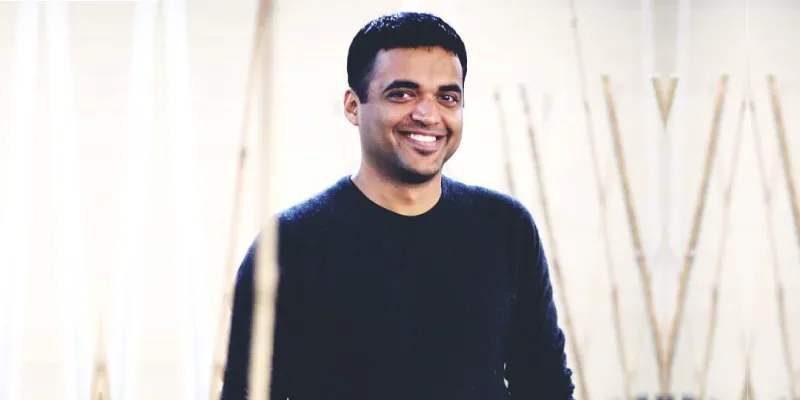

15578433761251559224518626.png?fm=png&auto=format&h=100&w=100&crop=entropy&fit=crop)




































1552879322388.jpg?fm=png&auto=format&h=100&w=100&crop=entropy&fit=crop)














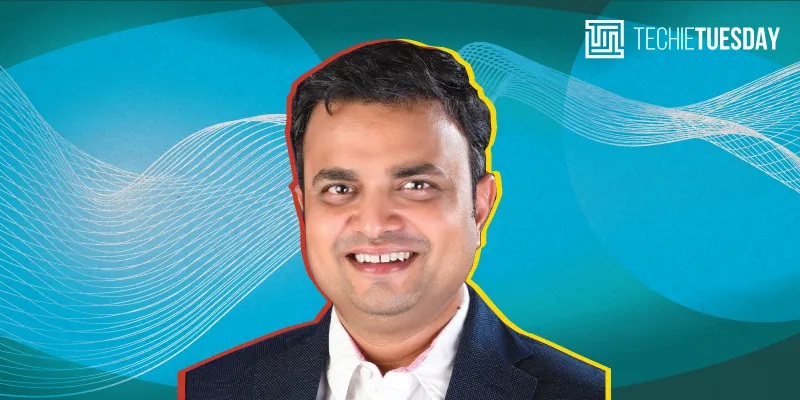




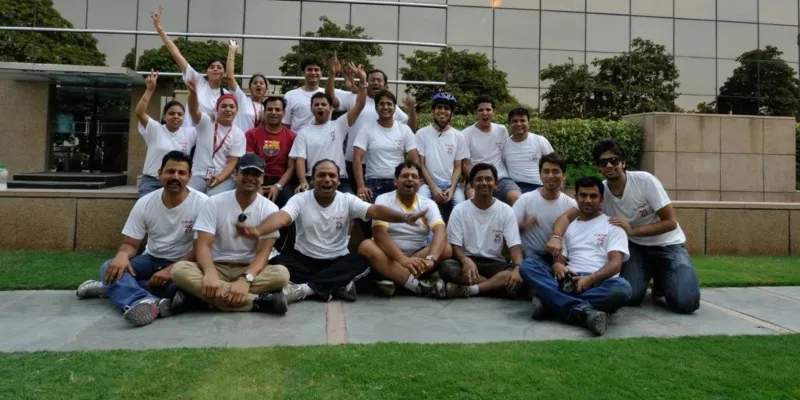


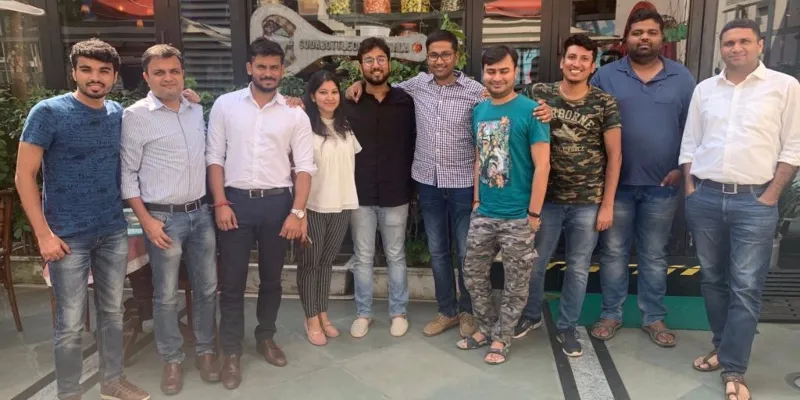


1568020319669.png?fm=png&auto=format)

1568020545266.png?fm=png&auto=format)
1566999703791.png?fm=png&auto=format&h=100&w=100&crop=entropy&fit=crop)
1566557205533.png?fm=png&auto=format&h=100&w=100&crop=entropy&fit=crop)
1568035799907.jpg?fm=png&auto=format)
1568036077315.jpg?fm=png&auto=format)



1568036466665.jpg?fm=png&auto=format)


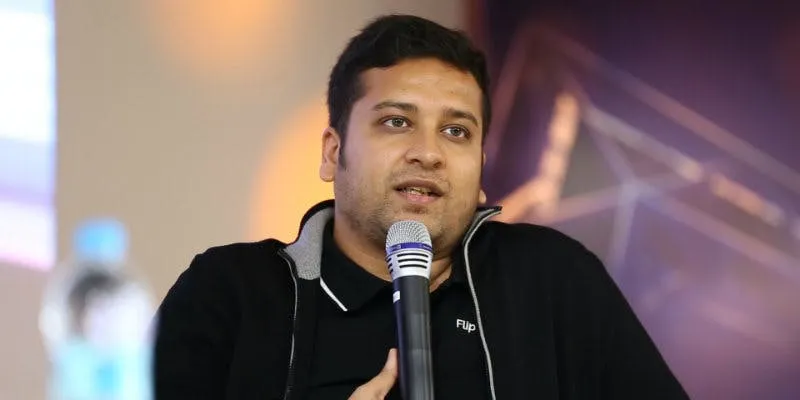
1567772573423.png?fm=png&auto=format)



1568007282159.jpg?fm=png&auto=format)





